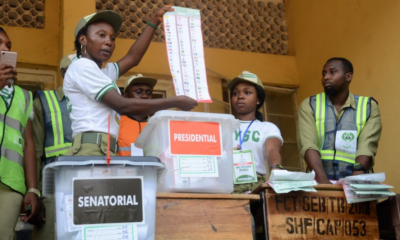Finance
How diaspora remittances help Nigerian families send 200,000 children to school


WorldRemit research shows that switching from offline into digital remittances could free up a further $825 million for education worldwide
New research from the digital money transfer service WorldRemit shows tens of thousands of Nigerian children are in school, have access to books and educational supplies, and are more likely to study and less likely to work due to international remittances.
Nigeria is the largest remittance-receiving country in Africa, with annual figures now at a record $25bn.
This new research reveals the wide-ranging benefits of remittances to children’s education.
The findings were calculated using data from UNESCO, the World Bank, and Nigeria’s latest national household survey.
Approximately 220 million children are not in school in low and middle income countries. Of these, over 12 million live in Nigeria, one of the highest numbers of out-of-school of children in the world.
Key results include:
- Approximately 200,000 children in Nigeria are in school as a result of receiving international remittances
- Children in Nigeria are 40% less likely to be out of school if their household receives remittances
- Remittance-receiving households spend more on education — equivalent to a child’s set of school-books for 1.5 years
- Children in remittance-receiving households spend less time working on non-school activities, freeing up more time for school studies
WorldRemit also calculates that globally, if traditional, cash-based money transfers were replaced by lower-cost digital alternatives, an additional $825 million would be unlocked for families to spend on children’s education.
Savings from “going digital” could pay for the equivalent of 20 million school uniforms, 30 million school books and 16 million sets of school supplies for children in low and middle income countries.
The Country Director, Nigeria at WorldRemit, Pardon Mujakachi, said: “As millions of children in Nigeria start a new school year, our research is a timely reminder that the contributions of the diaspora are vital to the education of 200,000 children across the country. Switching to digital remittances would help maximise that even further.
With global remittances are predicted to rise in 2019, even more children are set to benefit.”
WorldRemit is one of the leading digital money transfer companies for the Nigerian diaspora. Customer surveys reveal that education is one of the top priorities for Nigerians living abroad, with many saying they support the schooling of children back home.
WorldRemit customers complete 1.3 million transfers every month from over 50 countries to over 145 destinations. More than half of its transfers go to Africa.
Source: Techeconomy.ng
-



 GRPolitics3 days ago
GRPolitics3 days agoLet the People’s Voice Stand: A High‑Assertiveness Call to Democratic Integrity in the Digital Age
-



 Spotlight3 days ago
Spotlight3 days agoProphetic Outlook for 2026: Help Is on the Way
-



 GRPolitics3 days ago
GRPolitics3 days agoAmidst Atiku and Obi in ADC, Bola Ahmed Tinubu Retains a Significant Structural Advantage Ahead of the 2027 Election – A Data‑Driven Assessment
-



 Culture3 days ago
Culture3 days agoGovernor Mbah Visits Igwe Greg Ugwu, Enyi 1 of Attakwu, Nkanu West LGA







